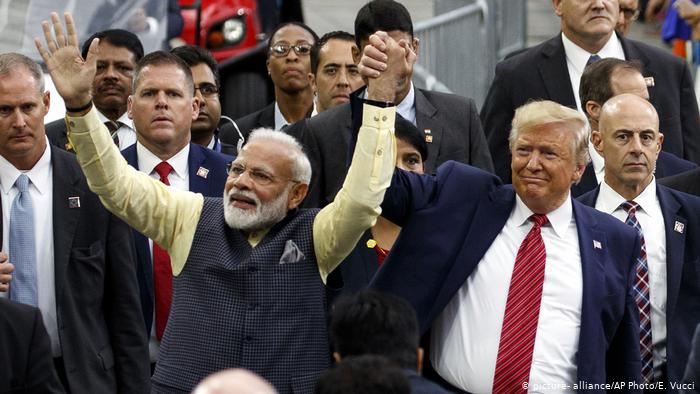
The Commissioner of the Ahmedabad Municipal Corporation in the Indian state of Gujarat, confirmed to DW on Friday that a wall was being built in the city before the arrival of US President Donald Trump in the city later this month.
The wall, which will stretch for half a kilometer, will be 4 feet (1.3 meters) tall. Behind the wall lies a slum area, which is home to at least 2,500 people.
Vijay Nehra of the local municipal corporation brushed off media reports that the wall was built to hide the slum area from the US president.
Nehra said that the project had already been commissioned two months ago, well before the announcement of Trump's India visit. The project, he said, is being undertaken to repair an existing wall, and it wouldn't obstruct the view of the slum area.
Nehra went on to say that the residents of the slum area were aware of the construction of the wall and the wall intended to prevent the slum from spreading further. Several media outlets had previously reported that the height of the wall was going to be 6-7 feet and that residents had not been informed about the construction.
The state of Gujarat has 43% people living in urban areas, of which 20% live in slums, according to a report by the Center for Water and Sanitation of CEPT University in Ahmedabad. Slums are typically devoid of infrastructure and lack basic services such as water and transport.
Trump is scheduled to visit India from February 24 to 25 to meet with India's Prime Minister Narendra Modi. During his visit, he will go to two cities - the capital, New Delhi, and Ahmedabad, the capital of the western state of Gujarat.
The US President's motorcade is to go along the walled-in area from Sardar Vallabhbhai Patel International airport to Motera stadium, which Trump is to inaugurate.
The Motera stadium, which has a capacity of around 100,000 people, is then to host an event called "Kem cho Trump" (How are you, Trump?).
On February 12, Trump said that Modi had promised that he would be greeted by millions of people on his way from the airport to the stadium.
Ahead of his impending visit, Trump said that he was willing to ink a trade deal with India if the coutnry turned out to be the "right one."
The US traditionally sees India as a strategic ally, particularly in regard to countering China's influence within Asia, and has heavily invested in the world's largest democracy, both militarily and economically.